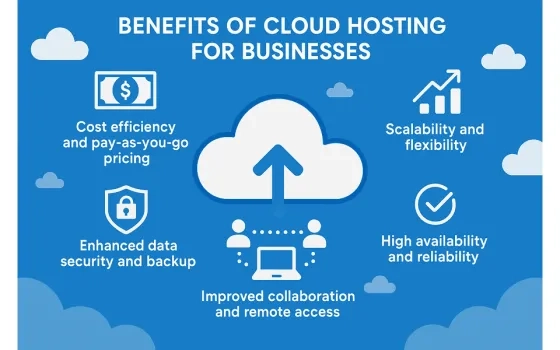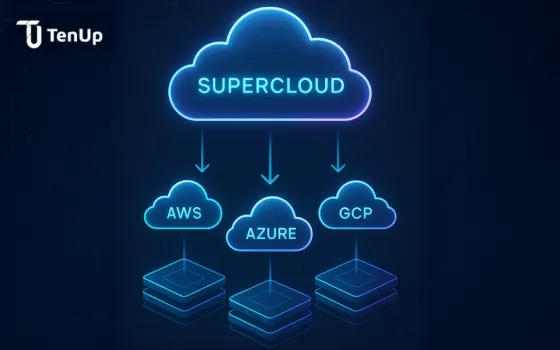The global supply chain is an intricate web of interconnected businesses and organizations that spans the world. It plays a critical role in ensuring that goods and services are delivered to customers on time and at the right price. However, the supply chain is not without its challenges. From unpredictable demand to logistical issues, there are many factors that can disrupt the flow of goods and services. Fortunately, quantum computing is emerging as a technology that can help address many of these challenges. In this article, we will explore how quantum computing can help overcome supply chain challenges and revolutionize the industry.
|
Supply Chain Challenge
|
Quantum Computing Application
|
Benefits
|
|
Demand Volatility
|
Quantum demand forecasting algorithms
|
Improved forecasting accuracy, better inventory management, and pricing decisions
|
|
Logistics
|
Route optimization algorithms
|
Reduced delivery times and costs, improved customer satisfaction, and reduced environmental impact
|
|
Supply Chain Optimization
|
Quantum optimization algorithms
|
Reduced costs and improved delivery times by identifying bottlenecks and inefficiencies in the entire supply chain
|
Understanding Quantum Computing
Before we delve into how quantum computing can help the supply chain, let's first understand what quantum computing is. Quantum computing is a type of computing that uses quantum mechanics principles to perform calculations. Unlike traditional computing that uses bits to represent information as 0 or 1, quantum computing uses quantum bits (qubits) to represent information as a 0, 1, or a superposition of both. This allows quantum computers to perform complex calculations at a much faster rate than traditional computers.
Supply Chain Challenges
One of the biggest challenges that the supply chain faces is demand volatility. Businesses often struggle to accurately forecast demand, which can lead to excess inventory or stockouts. This can result in increased costs and lost revenue. Another challenge is logistics. With global supply chains, the movement of goods and services can be complex and difficult to manage. This can lead to delays, lost or damaged goods, and increased costs.
How Quantum Computing Can Help
Quantum computing can help address many of the challenges that the supply chain faces. Let's look at a few examples:
Demand Forecasting
Quantum computing can help improve demand forecasting accuracy by analyzing vast amounts of data in real-time. By using quantum algorithms, businesses can identify patterns and trends that traditional computing would not be able to detect. This can help businesses make better decisions about inventory management, pricing, and promotions.
Route Optimization
Logistical challenges can be addressed through route optimization. Quantum computing can analyze multiple variables such as traffic, weather, and shipping costs to find the most efficient route for goods and services. This can help reduce delivery times and costs, improve customer satisfaction, and reduce environmental impact.
Supply Chain Optimization
Quantum computing can also help optimize the entire supply chain. By analyzing data from suppliers, manufacturers, and distributors, businesses can identify bottlenecks and inefficiencies. This can help reduce costs and improve delivery times.
Challenges of Quantum Computing in the Supply Chain
While quantum computing has the potential to revolutionize the supply chain, there are also challenges that need to be addressed. One challenge is the lack of talent with expertise in quantum computing. As a relatively new field, there are currently few experts in the field. Another challenge is the high cost of quantum computing. While the cost of quantum computing is decreasing, it is still expensive compared to traditional computing.
Conclusion
Quantum computing has the potential to overcome many of the challenges faced by the supply chain. By improving demand forecasting, optimizing routes, and analyzing data, businesses can reduce costs and improve customer satisfaction. However, the challenges of quantum computing need to be addressed, including the lack of expertise and the high cost. With continued advancements in quantum computing, it is expected to play an increasingly important role in the supply chain and revolutionize the industry.
Keeping your fulfillment process steady is made easier with the use of technology for effective business solutions. Get in touch with Aeologic Technologies right away to see how it can benefit your company.
The global supply chain is an intricate web of interconnected businesses and organizations that spans the world. It plays a critical role in ensuring that goods and services are delivered to customers on time and at the right price. However, the supply chain is not without its challenges. From unpredictable demand to logistical issues, there are many factors that can disrupt the flow of goods and services. Fortunately, quantum computing is emerging as a technology that can help address many of these challenges. In this article, we will explore how quantum computing can help overcome supply chain challenges and revolutionize the industry.
|
Supply Chain Challenge
|
Quantum Computing Application
|
Benefits
|
|
Demand Volatility
|
Quantum demand forecasting algorithms
|
Improved forecasting accuracy, better inventory management, and pricing decisions
|
|
Logistics
|
Route optimization algorithms
|
Reduced delivery times and costs, improved customer satisfaction, and reduced environmental impact
|
|
Supply Chain Optimization
|
Quantum optimization algorithms
|
Reduced costs and improved delivery times by identifying bottlenecks and inefficiencies in the entire supply chain
|
Understanding Quantum Computing
Before we delve into how quantum computing can help the supply chain, let's first understand what quantum computing is. Quantum computing is a type of computing that uses quantum mechanics principles to perform calculations. Unlike traditional computing that uses bits to represent information as 0 or 1, quantum computing uses quantum bits (qubits) to represent information as a 0, 1, or a superposition of both. This allows quantum computers to perform complex calculations at a much faster rate than traditional computers.
Supply Chain Challenges
One of the biggest challenges that the supply chain faces is demand volatility. Businesses often struggle to accurately forecast demand, which can lead to excess inventory or stockouts. This can result in increased costs and lost revenue. Another challenge is logistics. With global supply chains, the movement of goods and services can be complex and difficult to manage. This can lead to delays, lost or damaged goods, and increased costs.
How Quantum Computing Can Help
Quantum computing can help address many of the challenges that the supply chain faces. Let's look at a few examples:
Demand Forecasting
Quantum computing can help improve demand forecasting accuracy by analyzing vast amounts of data in real-time. By using quantum algorithms, businesses can identify patterns and trends that traditional computing would not be able to detect. This can help businesses make better decisions about inventory management, pricing, and promotions.
Route Optimization
Logistical challenges can be addressed through route optimization. Quantum computing can analyze multiple variables such as traffic, weather, and shipping costs to find the most efficient route for goods and services. This can help reduce delivery times and costs, improve customer satisfaction, and reduce environmental impact.
Supply Chain Optimization
Quantum computing can also help optimize the entire supply chain. By analyzing data from suppliers, manufacturers, and distributors, businesses can identify bottlenecks and inefficiencies. This can help reduce costs and improve delivery times.
Challenges of Quantum Computing in the Supply Chain
While quantum computing has the potential to revolutionize the supply chain, there are also challenges that need to be addressed. One challenge is the lack of talent with expertise in quantum computing. As a relatively new field, there are currently few experts in the field. Another challenge is the high cost of quantum computing. While the cost of quantum computing is decreasing, it is still expensive compared to traditional computing.
Conclusion
Quantum computing has the potential to overcome many of the challenges faced by the supply chain. By improving demand forecasting, optimizing routes, and analyzing data, businesses can reduce costs and improve customer satisfaction. However, the challenges of quantum computing need to be addressed, including the lack of expertise and the high cost. With continued advancements in quantum computing, it is expected to play an increasingly important role in the supply chain and revolutionize the industry.
















